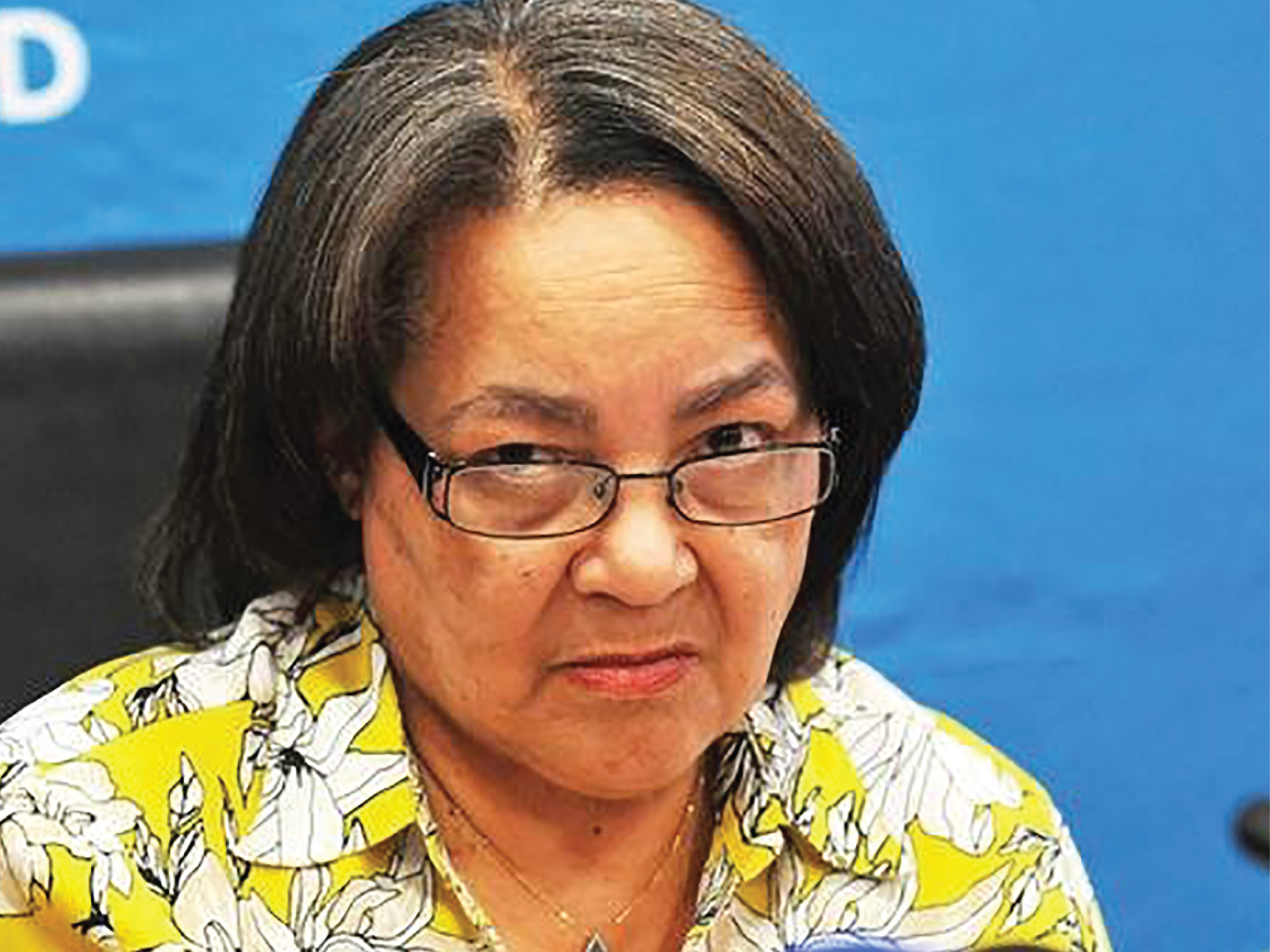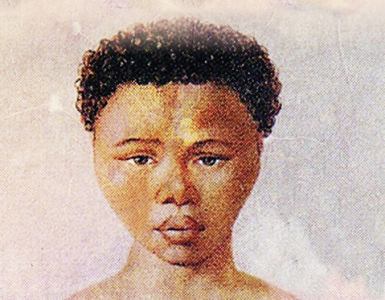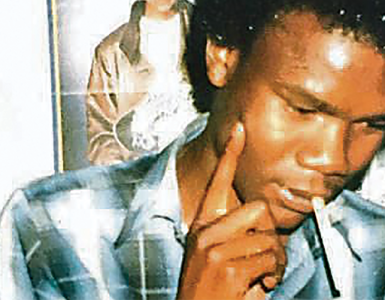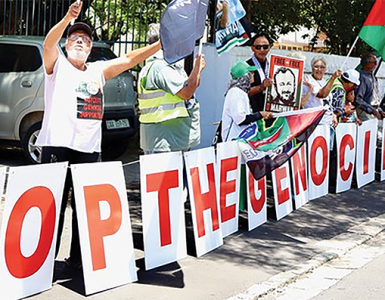dossier: The Judges say there was no reason for Chief Justice to refer unfounded allegations to NPA…
By Monk Nkomo
THE dossier that allegedly exposed corruption and fraud in the multibillion-rand arms deal was a bizarre document brilliantly used by the former mayor of Cape Town, Patricia De Lille for 15 years to fashion her political career.
This startling claim is made by a commission of inquiry witness in papers submitted by two retired senior judges who have been accused of misconduct regarding the handling of the commission of Inquiry into the 1999 Strategic Defence Procurement Package, commonly known as the arms deal.

The two judges are currently under fire over their findings that there was no evidence of corruption in the arms deal. A subsequent North Gauteng High Court judgement, which set aside the findings on the grounds that the commission failed to admit, interrogate and pursue evidence related to corruption allegations in the 1999 arms deal, fueled a raging controversy which ultimately led to the complaints being filed with the Judicial Conduct Committee against the two judges.
Former Supreme Court of Appeal judge, Willie Seriti and retired Free State Judge President Hendrick Musi filed representations to the Judicial Conduct Committee, challenging complaints levelled against them by business companies Shadow World Investigations and Open Secrets on behalf of complainants Hennie Van Vuuren, Andrew Feinstein and Paul Holden.
In their representations, the two former senior judges submitted that De Lille, while a Member of Parliament called for a judicial commission of inquiry to probe the arms acquisition programme and the offsets thereof on September 9, 1999 to determine whether any officials and public representatives were guilty of criminal conduct.
She made the call after receiving certain documents from concerned members of the ANC. She then prepared a dossier which contained only allegations and no evidence of wrongdoing, according to the two judges.
During her appearance at the commission that was established by President Jacob Zuma on October 24, 2011, De Lille testified that she never claimed that the allegations contained in her dossier ‘’ proved any wrong-doing on the part of persons mentioned in the dossier.’’
Instead, she told the commission: ‘’The information was given to me in confidence and I will not reveal the source. I have insufficient personal knowledge regarding the allegations contained therein to assist the Commission by way of oral evidence. I accordingly merely ask for the contents of the dossier to be investigated.’’
According to the two judges, she had never accused anybody of being corrupt. De Lille, according to the papers submitted by the two retired judges, refused to reveal the identity of people who gave her the document that contained allegations of misconduct. During cross examination she was unable to explain some of the allegations in the dossier that she wanted the commission to probe.
She gave one standard answer: ‘’The De Lille Dossier contains allegations which I believe the government should investigate. I have never claimed that the allegations proved the guilt of any person mentioned in the dossier’’.
According to the two retired judges, another witness who testified at the Commission was Terry Crawford-Browne, who said the offsets presented by successful bidders were fraudulent and unconstitutional. He also referred the Commission to a draft report of the Joint Investigation Team (JIT) which was edited in the President’s office. The editing, which was conducted in October 2001, diluted disclosures that were highly critical of the arms procurement tendering procedures, the witness said.
The executive summary of the report found that there was no evidence of improper or unlawful conduct by the government. The witness said the offsets were a scam. Months before the supply agreements were signed, ANC whistle blowers had produced boxes of documentation to support allegations of corruption and fraud. The boxes were delivered to De Lille and the documents were later delivered to Judge Heath. These documents were later stolen from Heath’s offices.
Under cross examination, Crawford-Browne evaded answering most of the questions put to him, according to the two retired judges.’’ He was unable to provide details of people whom he alleged made certain reports to him regarding corruption. In other instances he referred to newspaper articles to substantiate his allegations.’’
His testimony was postponed to October 9, 2014. On that morning, he did not arrive but instead sent an email and a Cape Town –based journalist to the commission. The e mail read : ‘’ I have no difficulty with Patricia De Lille denying that she told me that Winnie Mandela was the leader of the ANC MPs who opposed the arms deal. I received that information from other sources. The real issue is that we managed to keep that secret for 15 years until Judge Seriti forced me to reveal who led those ANC MPs.
‘’As Patricia and I well know the importance of the De Lille Dossier was not its contents but the hysteria it evoked in the government and witch hunt that followed. Patricia has brilliantly used that bizarre document for 15 years to fashion a political career including her present position as Mayor of Cape Town, and of course when it comes to testifying before the Commission, the De Lille Dossier was revealed as lacking in substance,’’ said Crawford-Browne in the email.
Both Seriti and Musi asked the JCC to dismiss the complaint and submitted that there was no evidence that suggested that they were guilty of criminal conduct. Investigations conducted in Germany, United Kingdom and Sweden against companies involved in the arms deal tendering process also found no evidence of corruption against these companies.
There was no basis to allege that the Commission’s final report materially misled the public regarding the outcome of the Commission’s and third party meetings and communications, the judges said.
‘’There is absolutely no reason for the Chief Justice to refer the unfounded allegations of the complainants to any law enforcement authority or the National Prosecuting Authority’’.
• In 2019, Corruption Watch and Right2Know lodged an application for a review of the inquiry’s findings, which the North Gauteng High Court set aside in a decision by a full panel of judges, read by Gauteng Judge President Dunstan Mlambo, who said it was inexplicable for the inquiry to have ignored essential information before finding there was no evidence of corruption, improper influence, or fraud in the arms deal.
The court found that it was clear that the commission failed to enquire “fully comprehensively into the issues which it was required to investigate on the basis of its terms of reference.
































